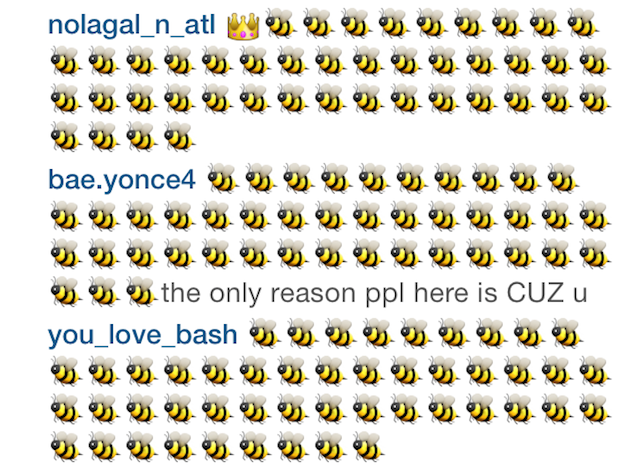![Storytime With Mom: A Genealogy of Rape]()
"If two people come together," my mother began, "who've never had any power except by the way of abuse, it's going to be bad. Both of us had power exerted over us as children. I eventually learned that as an adult, I was still doing the dance, seeking out abusive relationships. That doesn't mean it was my fault. But I played a role. And your father was abused by his father and, as an adult, he became a rage-aholic, exerting power over others."
"Mom, should you be telling me these things?" I ask.
![Storytime With Mom: A Genealogy of Rape]()
My mother left my father 27 years ago but the trauma has remained. Now, when I tense up at the sight of no one, I wonder if trauma is hereditary.
![Storytime With Mom: A Genealogy of Rape]()
Two years ago, my mother packed up her life on the west coast, where she lived for ten years, and moved back east. She settled in Boston, put everything in storage, found an apartment the size of a public restroom, and went about finding work.
My mother steals things, books in particular. When I'd return from another scholastic summer she'd always peruse my new books first. She'd relish in having raised a bookworm for a daughter and browse the latest additions to my bookshelves. Years before relocating to Boston, she'd lifted a book by David Adams called Why Do They Kill: Men Who Murder Their Intimate Partners. Adams' father murdered his wife (Adams' mother) and Adams eventually founded Emerge, the first abuser education program in the country. I'd taken some feminism and domestic violence courses and his book sat on, what my roommate endearingly referred to as, "the rape shelf" in our kitchen.
Once in Boston, my mother looked up Emerge and eventually began volunteering there. In the past two years, she has earned state certifications in Batterer Intervention. She sits in on batterers' groups and listens to them as they tell their stories—why they hit, what drove them to that point. Sometimes she will call me afterwards and fill me in on all of the ridiculous, funny, and tragic things said by these men. Her official role as a volunteer is to manage the database: she takes written hard-copy files dating back to 1977 and enters them into the computer. She often spends hours reading the histories and testimonies of these men who beat and/or killed their intimate partners. (It's rare for a batterer to have only one victim in his or her lifetime.) She speaks to me with a familiarity and ease not just as her daughter, but as a comrade. Her work in social services dates back to the 1970s. In college, and years after, I volunteered as a rape crisis counselor. So when we talk, we use shorthand for abuse and, yes, there's laughter.
My mother greatly enjoys her role at Emerge, and she's learned a lot. I've noticed how much lighter she appears when talking about abuse now—including her own.
But she is human, and it is not always easy.
![Storytime With Mom: A Genealogy of Rape]()
Last year, my mother opened up to me about a time my father raped her during their marriage. We'd just come home from my grandfather's funeral. My father's father. She'd always been close with her ex-husband's family, in part because her own had been so dysfunctional. That night as our muddy shoes dried in the bathtub, she cried on my bed about the violence of their marriage. It was the week before Christmas.
Maybe it's something about the holidays: it's one year later, and here she is, again, in my home, crying about this time in her life. A chapter I'd assumed was closed. But maybe that is my own way of dealing with this kind of rupture—that of my parent's marriage. My thinking is: their marriage is over so anything that occurred within it has also reached an end. But this is not the case.
My father and I have an okay, at times estranged, work-in-progress relationship. Whenever he makes an effort to reconcile with me, he has a way of complicating the very gesture of compromise. For example, even though he'd said he was coming to visit the week between Christmas and New Years, he somehow ended up visiting on a different date altogether—one that coincided with my mother's visit.
Only until fairly recently has my mother stopped communicating with my father. She was an excellent co-parent during my childhood and well into my twenties. But after I began grad school and fell ill, after what went from a mysterious unknown ailment to an absolute, definite diagnosis with no cure, and especially after she began her work with batterers, she stopped all forms of communication with him. She's declared her boundaries loudly and my father now lives outside of them.
![Storytime With Mom: A Genealogy of Rape]()
"It was like 30 years ago, and I got terrified, like he was going to hurt me."
We're in my kitchen and I've braced myself. I've just told my mother that my father's visit would overlap with hers. I can tell she's going to breakdown at any moment. When she does, the first thing I notice is how similarly we both cry. We freeze, gasp, and then howl.
Instead of getting frustrated or tired or overwhelmed—as I have in the past—I remained calm and bore witness. I listened. I tried not to be a needy daughter and instead a daughter who's trained in rape crisis. I reminded her that she is safe. I told her that my only job was to remind her that she is safe. It was only when I said this out loud to her that I believed it to be true. You are my mother. You are safe. There is no fear here.
![Storytime With Mom: A Genealogy of Rape]()
I need my mother to tell her story because her narratives have become my own. Beauty marks, fingers, ways of speech, memories—it has all become so jumbled that it's a struggle to pick out what belongs to whom.
My father is guilty of many things with me, but not sexual abuse, not rape. He was not my abusive husband. He is my father. He is my mother's batterer. At times, I feel myself reacting to him not as his daughter but as a witness of my mother's. When he speaks and gestures, I imagine her presence with us, reacting, scowling, perhaps cringing or covering her face.
After 30 years it is now hitting me—how unsurprising and damn-near natural it is that my mother's victimization, at the hands of my father, was also my abuse. Like everything else, my mother's sheer being has an immense effect on me. It is a totality. Consider this: it is no exaggeration when I say that she dreamed of me before I was born. I don't mean she had girly flights into maternal fantasies. I mean one night in 1981 she dreamt that her sister, Linda (my namesake), was looking inside of her with a light and said, "Toni, I think there's a little girl in there."
If I am my mother's child, then her scars are mine, too. Just like her thick hair and my lion's mane. Just like my occasional southern drawls are hers. Just like her flirtatious, sideways grin and my disarming smile. We are a breed of charmers.
![Storytime With Mom: A Genealogy of Rape]()
I used to write about the generations of black women I come from. I used to read Corregidora. For years I obsessed over William Faulkner's passages on the not-whores of New Orleans. It never occurred to me that I didn't need to go that far back.
I look up, taking a break from writing this, and see a card from her. It's a picture of a kitten. Underneath the image she writes, BE GOOD LOVE MOMMIE. I smile.
Linda Chavers is a writer who lives in New Hampshire. Her mother's favorite food is chitlins, she does not like the "Free Hug" people at Harvard Square, and she reads the dictionary for pleasure.
[Illustration by Tara Jacoby]


























![The Gawker Review Weekend Reading List [2.28.15]](http://i.kinja-img.com/gawker-media/image/upload/s--D8z2cjg---/c_fit,fl_progressive,q_80,w_636/ygvyvnyxlamo3gpizzua.jpg)


















